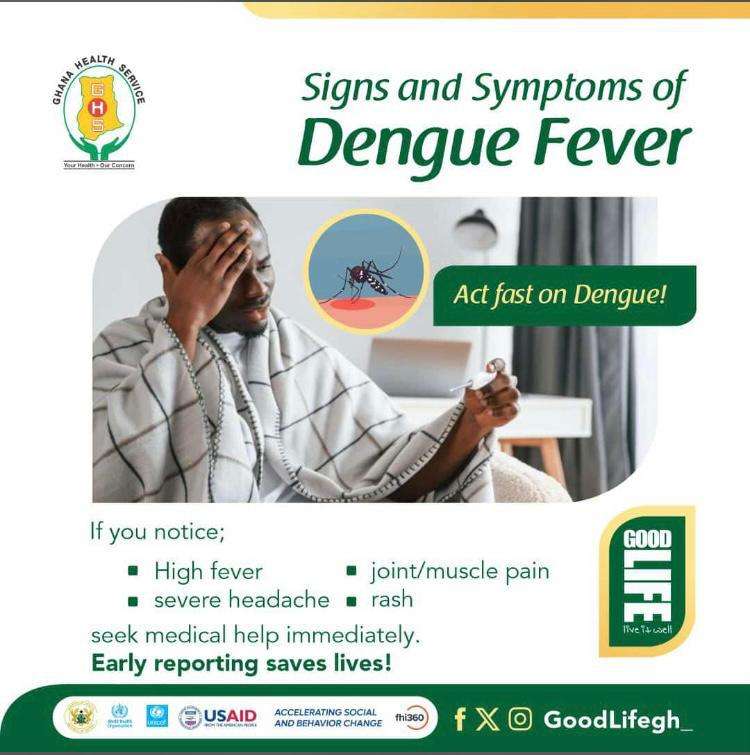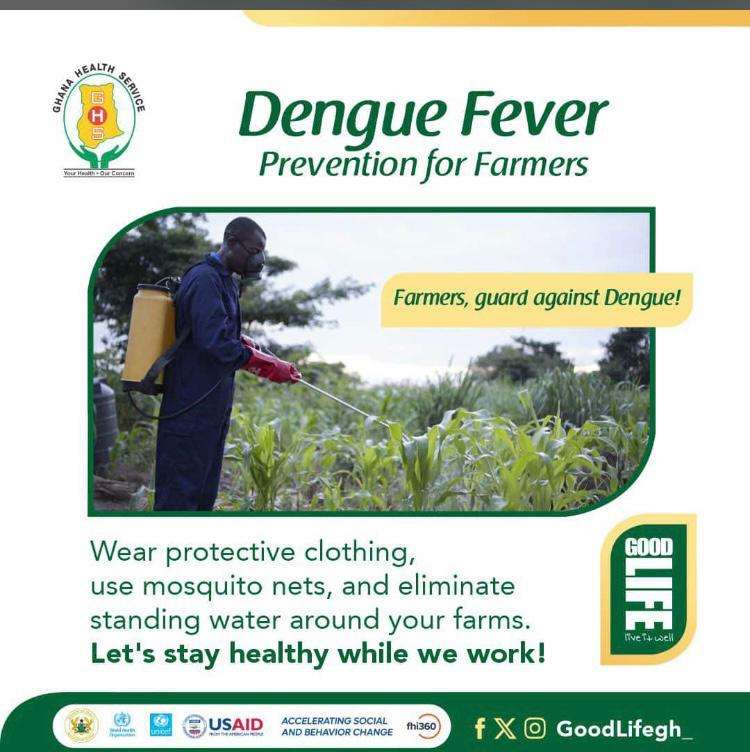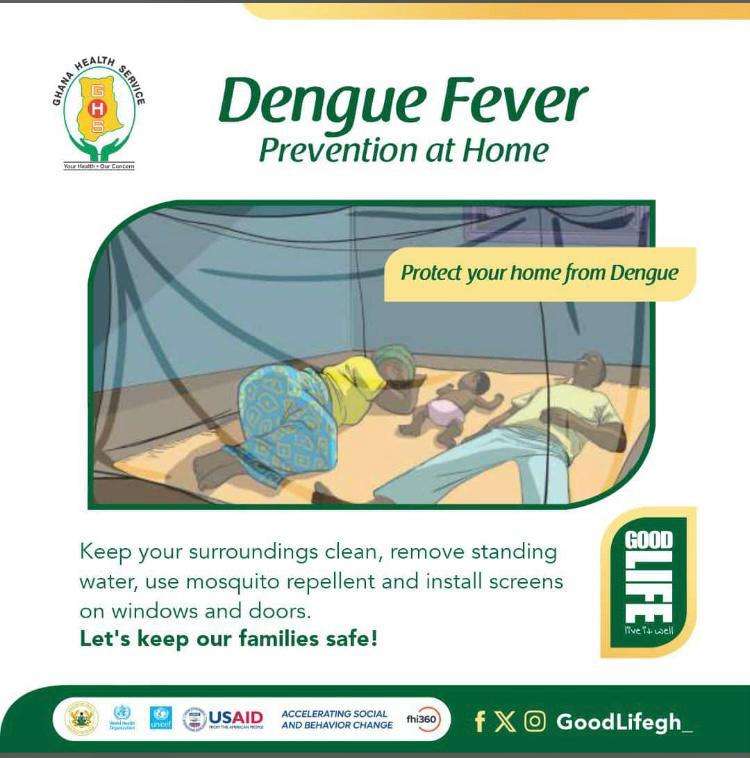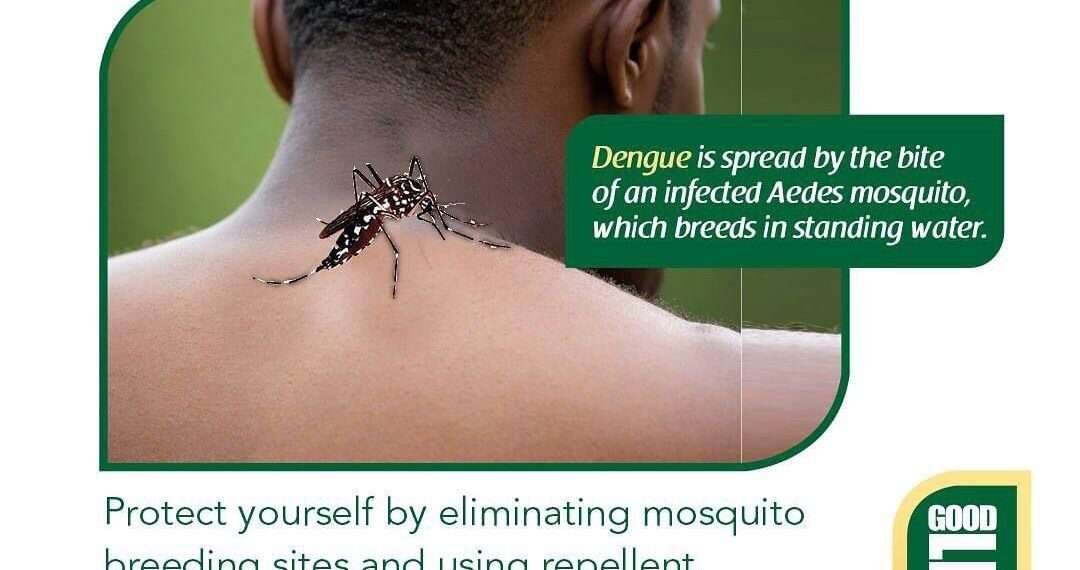The recent emergence of Dengue Fever in Ghana, marked by a significant increase in recorded cases from 9 to 36 in the Eastern and Central Regions, has prompted the Ghana Health Service to declare an outbreak. This alarming development underscores the need for heightened public awareness and an understanding of this mosquito-borne viral disease.
In an exclusive interview with The Vaultz Media, Dr. Salifu Bawa, Public Health Specialist, District Director of Health Services Twifo Hemang Lower Denkyira, provided critical insights into Dengue Fever, its symptoms, transmission, and preventive measures. Dengue Fever is caused by a virus transmitted to humans through the bite of infected mosquitoes, primarily the Aedes species.
“Dengue Fever causes people to feel hot and warm. It’s not just a fever; it’s an acute fever. It develops over a short period, usually between 2 to 7 days, and comes with symptoms such as headache, bodily pain, joint pain, and weakness.
“Some people may experience abdominal pain, and in some instances, it can cause bleeding in certain parts of the body.”
Dr. Salifu Bawa, District Director of Health Services Twifo Hemang Lower Denkyira

Dr. Bawa categorized Dengue Fever into three levels of severity: Dengue Fever, Dengue Hemorrhagic Fever, and Dengue Shock Syndrome.
“Dengue Fever is characterized by fever, body pain, and headache, manageable on an outpatient basis. However, Dengue Hemorrhagic Fever can cause bleeding, leading to circulatory collapse and potentially death if not treated.
“Dengue Shock Syndrome is the most severe form, involving severe bleeding and shock, requiring immediate medical attention.”
Dr. Salifu Bawa, District Director of Health Services Twifo Hemang Lower Denkyira
Prevention and Treatment

Dr. Bawa highlighted that preventative measures primarily revolve around avoiding mosquito bites. Given that the mosquitoes transmitting Dengue Fever are active during daylight hours, protective clothing and repellents are recommended.
“Staying indoors in areas with high mosquito presence, maintaining a clean environment devoid of stagnant water, and breeding grounds for mosquitoes are also crucial steps.”
Dr. Salifu Bawa, District Director of Health Services Twifo Hemang Lower Denkyira
Dr. Bawa further emphasized that at the community level, collective efforts to eliminate stagnant water sources and overgrown vegetation can significantly reduce mosquito populations. Chemical fumigation may be employed to further decrease mosquito numbers, contingent upon community capacity and involvement.
According to Dr. Bawa, treatment for Dengue Fever is symptomatic, focusing on alleviating the presenting symptoms.
“Paracetamol is used to manage the fever, and staying well-hydrated is essential to prevent dehydration caused by fever and vomiting. Proper rest is also important,” Dr. Bawa noted. He advised that persistent symptoms such as vomiting should not be ignored and warrant medical attention.
Dr. Bawa emphasized the importance of recognizing Dengue Fever as an outbreak, given the sudden increase in cases beyond what is normally expected. This situation places significant strain on healthcare resources, affecting both human and logistical capacities. The economic implications are profound, with potential impacts on workforce productivity and agricultural output.
Government Response and Preparedness

The government plays a pivotal role in managing such outbreaks, reallocating finances initially intended for other sectors to address the immediate health crisis. Emergency preparedness involves strategic planning and resource allocation to ensure readiness for such eventualities.
Dr. Bawa highlighted several proactive measures, including the distribution of mosquito nets, wearing protective clothing, applying repellents, and maintaining a clean environment. Early detection and prompt medical treatment upon symptom manifestation are crucial steps towards mitigating the impact of Dengue Fever.
The current outbreak in Ghana represents a significant public health challenge. Dr. Bawa pointed out that while Dengue Fever is not entirely new to the country, the current number of cases is beyond the usual endemic levels, thus constituting an outbreak.
“We are recording more cases than we usually would, putting pressure on our healthcare resources.”
Dr. Salifu Bawa, District Director of Health Services Twifo Hemang Lower Denkyira
The Dengue Fever outbreak in Ghana is a reminder of the critical importance of public health awareness and proactive measures. It calls for a concerted effort from all stakeholders, including healthcare professionals, government agencies, and the general public.
The outbreak serves as a stark reminder of the importance of vigilance, community action, and effective public health strategies. As Dr. Salifu Bawa aptly noted, “We should all be vigilant and implement preventive measures to combat this disease.”
Through collective effort and informed action, Ghana can navigate this health challenge and safeguard its communities against the further spread of Dengue Fever.
READ ALSO: GSE Reaches Historic Milestone with Over GHS 90 Billion Market Capitalization





















